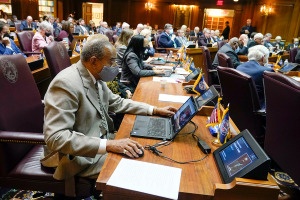Prospects for Indiana tax cuts boosted by governor’s support
Indiana Gov. Eric Holcomb said Wednesday he now believes the state’s individual income tax rate could be cut while maintaining enough state revenue for additional spending needs in the next state budget to be adopted in 2023.




